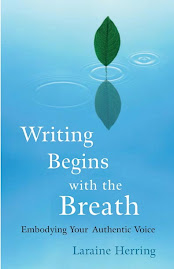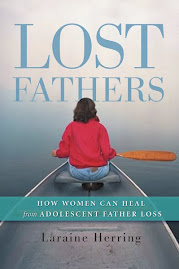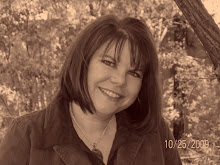When I was in tenth grade, I wrote of a feud between the Scalene Triangle Family and the Equilateral Triangle Family. They were arguing over who had the biggest angle. I wrote this not in an English class, but in a Geometry class. I was undone by math. I was never great at it, but once math moved from two apples plus two bananas equals four pieces of fruit, I felt betrayed because I could no longer see what math was doing. This is ironic because I can read a story or a poem and I almost never take things literally, yet in math, I wanted the literal. Once I could no longer touch math with my hands, it disappeared (and don't even get me started on the insanity that are imaginary numbers). Yet I can out-metaphor anyone in writing. It's interesting to be overskilled in the same general idea in one application and woefully underskilled in a different application.
Today, I observed a colleague as part of our Peer Review mentoring program. She was teaching her first developmental English class. This is the class where students end up who are at lower than 8th grade reading level. This is the class where the students have many more problems than just low reading skills. This is the class where the students are terrified of school. They've been called stupid. They've long ago given up on school as a place for growth. Watching my colleague teach this group today, I realized part of why I love teaching at the developmental level. I love language so much, and even though I don't always convince all of them to feel the same way, I want the students to leave the class not hating sentences and books. I want them to feel like freedom is in those paragraphs, not prison. I wish there had been a math class for me with a teacher like that -- someone who loved math so much that she or he couldn't stand the fact that there were people with math anxiety out there, people who didn't see the beauty in the language of integers. And that teacher had the patience and huge heart to sit with all of us who didn't understand until we at least no longer cried. I watched these developmental students stare at the blank computer screen, frozen. Most of them were trying to do what was assigned. I could empathize with this.
I have many new responsibilities this year at work, and one of them seems to involve statistics and spreadsheets and some strange thing called a Pearson coefficient. There are people on campus here who live in the buildings of the Highly Paid who generate this data and distribute it and then require us to analyze it, make predictions, and make action plans based on numbers that I don't know how to read. I've had trouble sleeping this week, waking up in the middle of the night worrying that I'm going to make an arithmetic error (which I always do) that will somehow negate my program. I worry that my inability to make sense of numbers will adversely affect my program. If people believe so much in the data and I make an incorrect data calculation (which I always do) then what? I feel my chest contract, my stomach shut down. I printed out fifteen pages of Excel spreadsheet data on my program -- coefficients, (what really IS that?) graphs, pie charts, areas in red ink that tell me this is BAD data. Areas in green ink that tell me this is GOOD data. It has been sending me back to middle school. I look at it and I freeze. I do not know how to move.
I want to shout, "Look at all these letters from students! Look at how many have gotten into MFA programs! Look at how many have softened their hearts!" But I can't measure that last one, and it's the most important.
I walked across the quad yesterday to the math and science building. It's a scary place, filled with skulls, cadavers, labs full of chemicals, poison symbols on doors, and way way too many graphing calculators. It smells like formaldehyde. Math faculty live on the lower level and science faculty live on the upper level. Alright, I said to myself. I am 43 years old. There are at least seven faculty members who are my friends and who happen to teach math. Alright. I will slay this math demon. So I went to talk to one of them and felt the tears. Good lord, did I mention I'm 43 years old? I am terrified of math. I didn't know how deep the fear ran. I went to the faculty member who teaches developmental math. He and his wife are friends of mine. She owns one of my favorite coffee shops and she also is afraid of math, so I thought he would be safe. He can obviously talk to non-math people.
"Just call me and I'll come to your office and I'll help you build a spreadsheet," he said, as if I just asked him to do the easiest thing on the planet.
"Doesn't that terrify you?"
He laughed. "Piece of cake."
"OK, but is this a big deal? I don't even know how to ask the questions. I don't know what I'm supposed to do."
"Piece of cake."
"What the hell is a Pearson coefficient?"
"What was yours?"
".73."
"That's good."
"But what is it?"
"It doesn't matter."
"But they talk about it a lot."
"They do. Don't worry."
"Really?"
"Call me."
Another student was waiting outside his office, book clutched to her chest. She went into his office, next to the Dr. Spock cardboard cut out and the poster "Math is Power." I have a similar poster about stories, and my cardboard cut out is of Johnny Depp. I slept better last night, though I still haven't figured out how to turn in my report with my synthesized data. I tried to fill in my average class size, which is below the college's required program average class size of 15, yet all my program's classes are capped at 15 because we have to read 50 pages of student writing and, gosh, we just can't use a scantron like some fields which Shall Not Be Named. It's bad that my class size is below 15 (yes, even though the caps are 15, so to get an average class size of 15, we'd have to have no drops, no withdrawals, and no failing grades. Even I can do that math.)
I tried to type in the number of my average class size that the Highly Paid Numbers People gave me of 13.2. The form turned red. NOT A VALID INTEGER, it said. Fine then. You gave me the number. If that's not valid, I'll round up because UP is positive and DOWN is negative. 14 is better than 13. An academic year average of 14, with class capacities of only 15, tell me that we ROCK. Maybe I should finish this on Monday when I'm not yelling at a form.
What does this have to do with teaching writing? I have absolutely no idea. How does this strengthen my program? I have no idea. How does this help me cultivate greater empathy in my students and a deeper respect for their own narratives and those of others? I have no idea. I'll fill out my form. It doesn't matter.
But maybe math could be an ally. One person's change affects all those around her. One person's deepening compassion affects his community. I think that's called geometric progression. I'm probably wrong about that. But I'm not wrong in believing that it matters.












2 comments:
Just reading this post and thinking about assessment and how we use numbers to measure the success of students for whom just coming to class regularly would be a success - just reading this made my chest hurt. My prayers and wishes for all the math help in the world . . . and a reminder, that what you do is what matters, Laraine, not the numbers. Love you.
I felt my lungs constrict as I read this, friend. I have a Master's in Psych, not a PhD because I could not get past the third unit in the hypothetically user-friendly Personalized System of Instruction Statistics course. I could not learn statistics because I couldn't understand the equations. The gentle teacher and his grad assistant kept saying to me: "You don't have to understand the equations, just plug in the numbers." They knew to have a box of kleenex there for me when I managed to drag myself into the class.
There is a brilliant school of therapy and thought called Neurolinguistic Programming. One of their basic principles is that each of us has a brain different from all other brains, though there are some skilled in verbal, some in math, some in spatial, some in kinaesthetic. American universities and colleges are turning into cold marketing machines. And the students don't even know it's happening. love you, me
Post a Comment